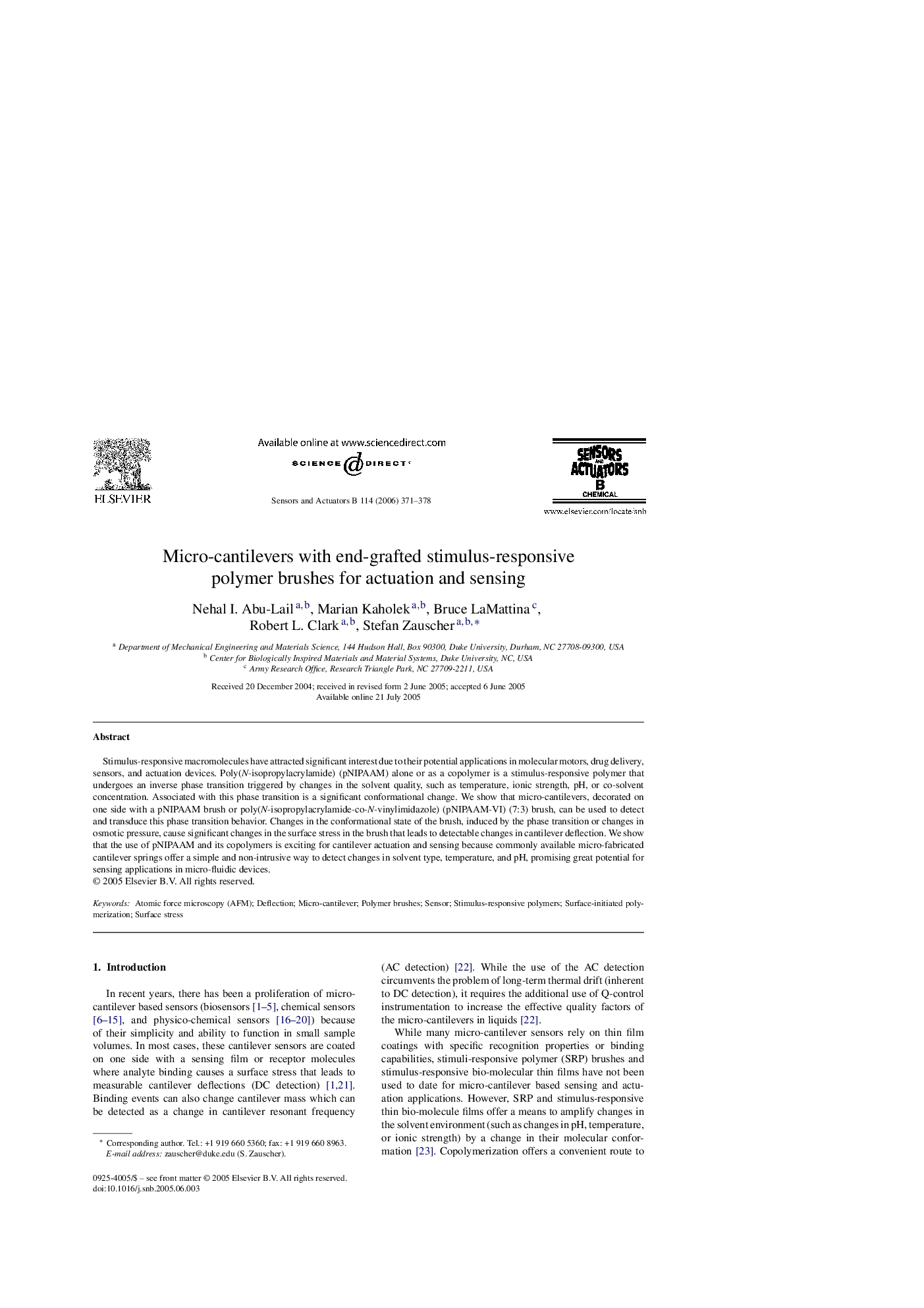| Article ID | Journal | Published Year | Pages | File Type |
|---|---|---|---|---|
| 751782 | Sensors and Actuators B: Chemical | 2006 | 8 Pages |
Stimulus-responsive macromolecules have attracted significant interest due to their potential applications in molecular motors, drug delivery, sensors, and actuation devices. Poly(N-isopropylacrylamide) (pNIPAAM) alone or as a copolymer is a stimulus-responsive polymer that undergoes an inverse phase transition triggered by changes in the solvent quality, such as temperature, ionic strength, pH, or co-solvent concentration. Associated with this phase transition is a significant conformational change. We show that micro-cantilevers, decorated on one side with a pNIPAAM brush or poly(N-isopropylacrylamide-co-N-vinylimidazole) (pNIPAAM-VI) (7:3) brush, can be used to detect and transduce this phase transition behavior. Changes in the conformational state of the brush, induced by the phase transition or changes in osmotic pressure, cause significant changes in the surface stress in the brush that leads to detectable changes in cantilever deflection. We show that the use of pNIPAAM and its copolymers is exciting for cantilever actuation and sensing because commonly available micro-fabricated cantilever springs offer a simple and non-intrusive way to detect changes in solvent type, temperature, and pH, promising great potential for sensing applications in micro-fluidic devices.
